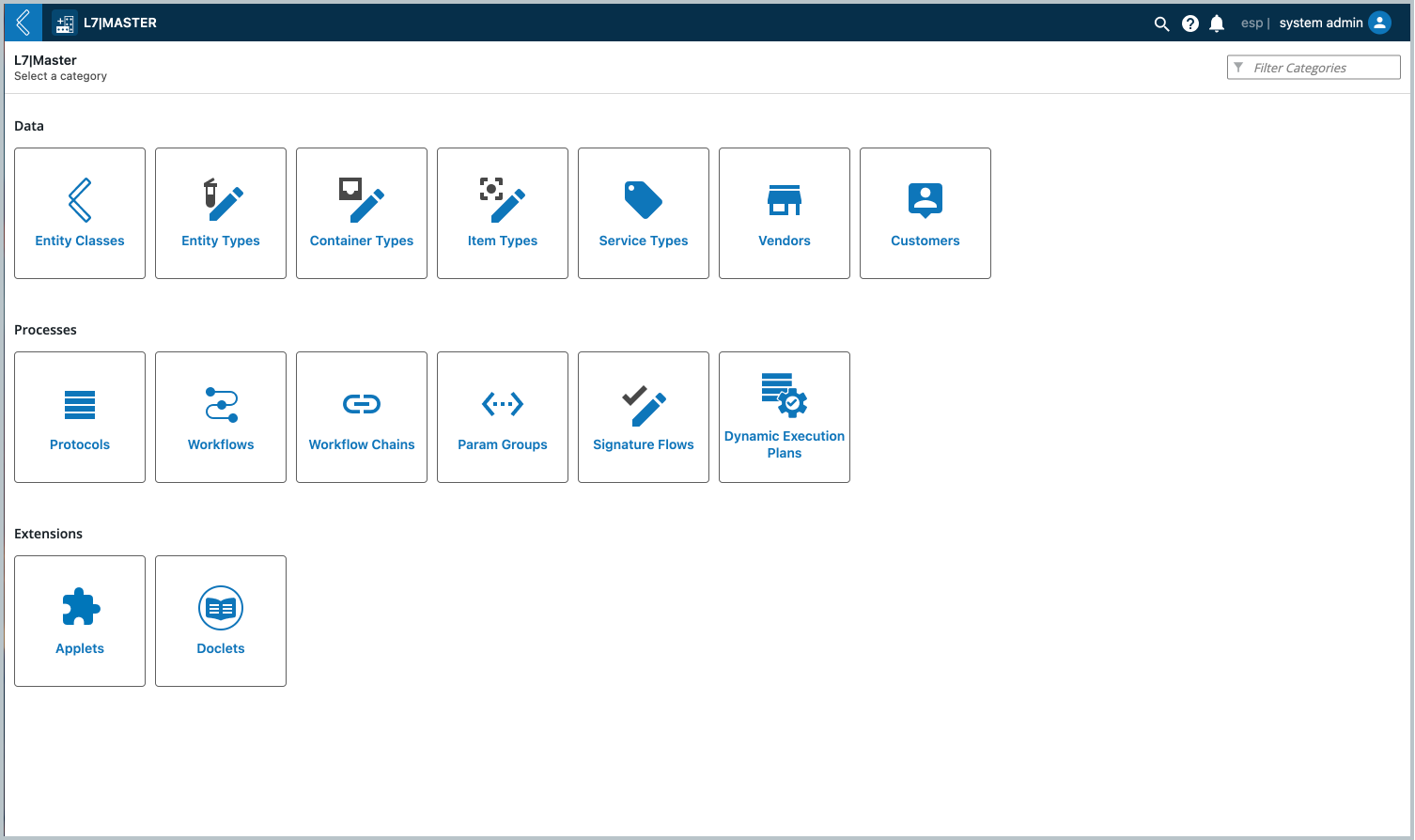Modeling Reusable Content
Overview
With L7 Notebooks being part of the L7|ESP ecosystem, you can use and link to resources created throughout the platform. Using L7|MASTER, you can create reusable data and process models that can be used in L7 Notebooks, L7 LIMS, and L7 MES. This allows your organization to seamlessly transition from research to development to manufacturing.

Data Models
Data models generally represent resources that are submitted to or are a component of a business process, such as Entities (i.e., samples, instruments, equipment, etc.), Items, and Containers.
To learn how to create data models, refer to these resources:
Process Models
Process models define the sequence of steps performed on a resource and the data to collect while performing the experiment. L7 Notebooks supports the use of standard Protocols (Protocol Definition widgets) and Workflows (Workflow Definition widgets). These process models behave similarly in L7 Notebooks as they do in L7 LIMS, but without the need to use the L7 Projects app or L7 LIMS app.
To learn how to create process models, refer to these resources:
Modeling Standard Protocols to create Protocol Definition widgets
Modeling Sample and Pipeline Protocols to create additional Protocol types for use in Workflows, however, note that:
Sample Protocols can only be used in the context of a Workflow
Pipeline Protocols are being depreciated and are replaced with the Pipeline Button custom field type
Modeling Workflows to create Workflow Definition widgets
Modeling Signature Flows to create signature flows be used in a Protocol as a Approval custom field type
Create Signature Flows to create signature flows to be used in the L7 Notebooks review process